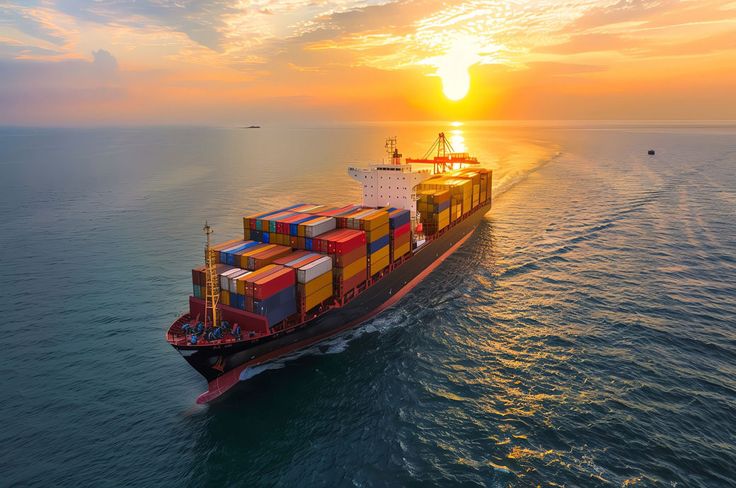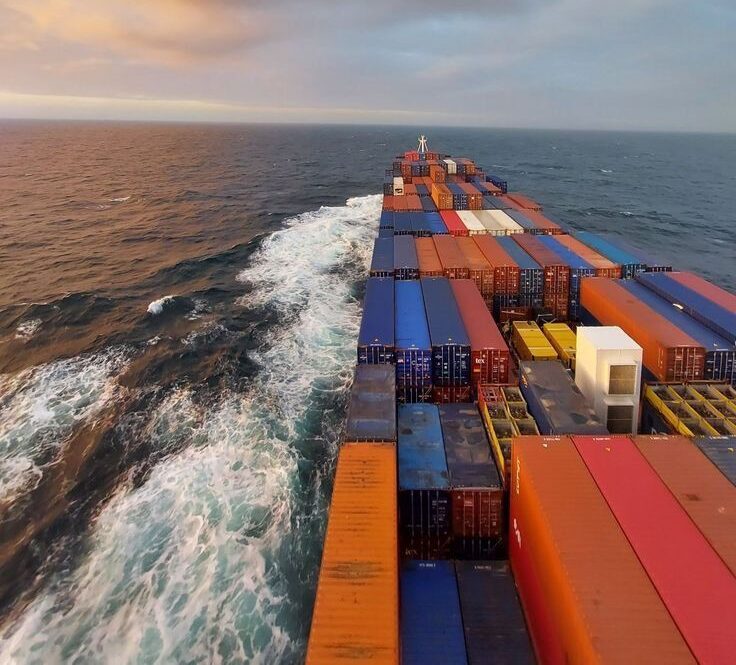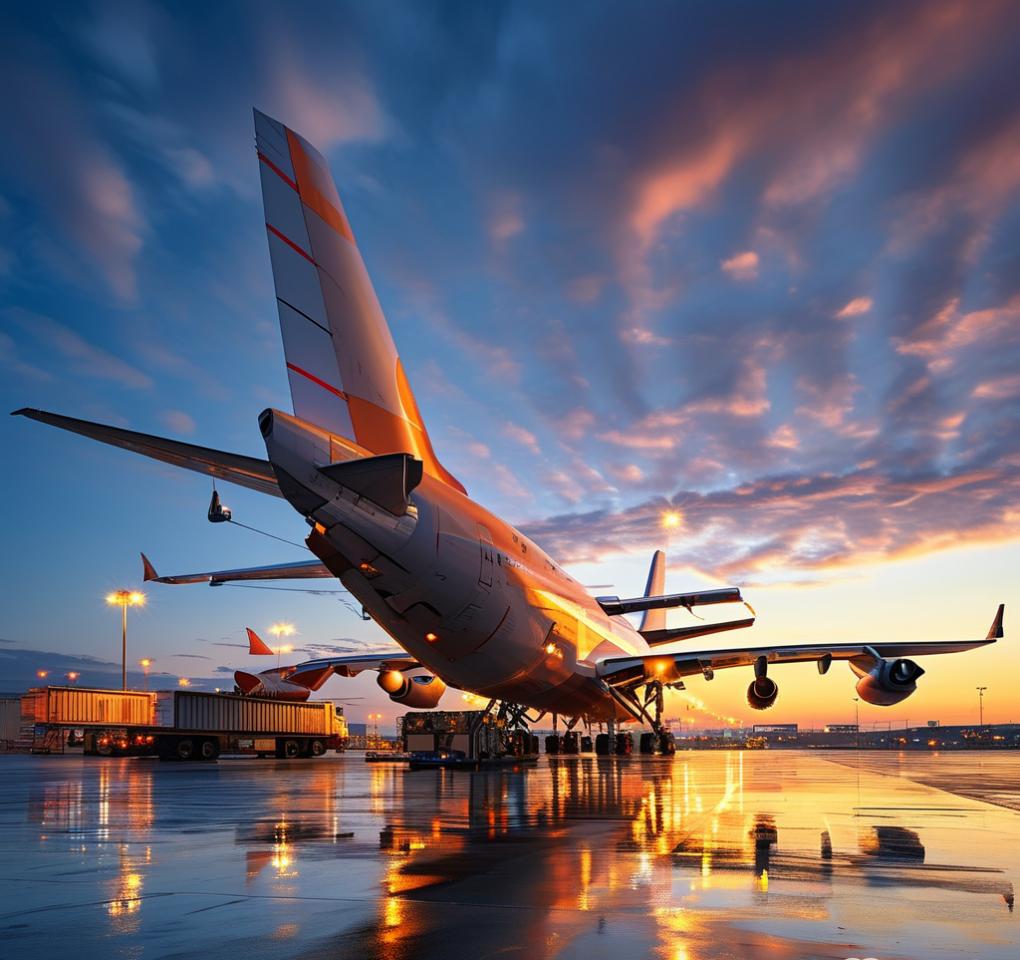- By TOP CHINA FREIGHT
- August 18, 2025
- Shipping
Table of Contents
Shipping from China to Japan plays a vital role in global trade. Whether you are importing electronics, textiles,or consumer goods, understanding how much does it cost to ship from China to Japan helps you plan logistics, control costs, and avoid delays. Shipping cost depends on factors such as transport mode, shipment volume, seasonal demand, customs duties, and packaging.

Shipping Methods Overview
There are three primary shipping options from China to Japan: sea freight, air freight, and express shipping. Each method has distinct benefits, transit times, and pricing.

Sea Freight
Sea freight is the most cost-efficient option for bulk shipments. It is commonly used for containers and large cargo shipments.
FCL (Full Container Load):
Ideal for businesses shipping a full container. It reduces per-unit cost and lowers the risk of damage compared to LCL.
LCL (Less than Container Load):
Allows multiple shippers to share container space. It’s cost-effective for smaller shipments but can be slightly slower due to consolidation processes.
Advantages:
Lower cost per unit, suitable for heavy or bulky items, reliable for non-urgent shipments.
Limitations:
Transit time is longer, generally 7-14 days depending on port location.

Air Freight
Air freight is faster than sea freight, usually taking 2-7 days. It is ideal for high-value or time-sensitive goods such as electronics, fashion items, or medical supplies. Air freight costs are calculated based on weight or volumetric weight, which is important for lightweight but bulky cargo.
Advantages:
Fast transit, reliable schedule, less risk of damage.
Limitations:
Higher cost per kg than sea freight, less efficient for very large shipments.

Express Shipping
Express shipping is the fastest option, provided by carriers such as DHL, FedEx, UPS, or TNT. Delivery is generally 1-3 days and includes door-to-door service. Express shipping is suitable for small parcels, urgent samples, or high-value goods.
Advantages:
Fastest delivery, convenient pickup and delivery, easy tracking.
Limitations:
High cost per kilogram, not suitable for large shipments.
| Mode of Transport | Delivery Time | Cost Range | Best For |
|---|---|---|---|
| Sea Freight (FCL) | 7-14 days | $1,200 – $4,500 per 20ft container | Bulk shipments, heavy cargo |
| Sea Freight (LCL) | 10-18 days | $40 – $100 per cubic meter | Small shipments, flexible volume |
| Air Freight | 2-7 days | $5 – $10 per kg | Urgent or high-value goods |
| Express Shipping | 1-3 days | $15 – $30 per kg | Small parcels, urgent shipments, samples |
Factors Affecting Shipping Costs
Understanding these factors helps answer how much does it cost to ship from China to Japan:
1.Cargo Weight and Volume:
Larger and heavier shipments increase costs. For air and express shipments, volumetric weight often determines pricing.
2.Freight Method:
Sea freight is cheapest for bulk, air freight balances speed and cost, express is fastest but most expensive.
3.Seasonal Demand:
Shipping during peak periods like Chinese New Year or Golden Week may result in surcharges.
4.Port Fees:
Both China and Japan charge terminal handling fees, documentation fees, and import/export fees.
5.Customs Duties and Taxes:
Japanese customs duties depend on HS codes and the declared value of goods.
6.Insurance:
Protects your cargo from damage or loss but adds to the overall cost.
Example:
Shipping 500 kg of consumer electronics from Shenzhen to Tokyo:
- Sea Freight (LCL): $400-$500
- Air Freight: $2,500-$3,000
- Express Shipping: $7,000-$7,500
Customs Clearance and Documentation
Lists goods, quantity, and value.
Details the packaging and items inside each package.
For sea freight or Air Waybill (AWB) for air freight.
Required for some tariff reductions or customs clearance.
For restricted goods such as electronics or chemicals.
Choosing the Right Freight Forwarder

A freight forwarder is essential for optimizing shipping costs and ensuring smooth logistics. Services include:
- Advising on the best shipping method based on cargo type, urgency, and budget.
- Consolidating LCL shipments to reduce costs.
- Handling customs clearance and documentation.
- Providing tracking and updates in real time.
Working with a trusted China freight forwarder can save time, reduce costs, and make international shipping predictable and stress-free.
Shipping Costs by Cargo Type
Different cargo types affect shipping costs due to weight, volume, and handling requirements:
- Electronics: Sensitive to damage, usually shipped via air or express.
- Textiles & Clothing: Lightweight, can be shipped via sea freight LCL for cost efficiency.
- Machinery: Heavy and bulky, often shipped via FCL sea freight.
- Perishable Goods: Require fast shipping, usually air freight or express.
Cost Example Table by Cargo Type:
| Cargo Type | Recommended Mode | Estimated Cost (500 kg) | Notes |
|---|---|---|---|
| Electronics | Air Freight / Express | $2,500 – $7,500 | Handle with care, fast delivery needed |
| Textiles & Clothing | Sea Freight LCL | $400 – $600 | Economical, non-urgent shipments |
| Machinery | Sea Freight FCL | $1,500 – $4,000 | Heavy cargo, cost-effective for full container |
| Perishables | Air Freight / Express | $3,000 – $7,500 | Time-sensitive, temperature-controlled if needed |
Shipping Routes from China to Japan
Common shipping routes include:
- Shanghai → Yokohama / Tokyo
- Shenzhen → Tokyo / Osaka
- Guangzhou → Osaka / Kobe
- Ningbo → Kobe / Yokohama
Sea freight transit time: 7-14 days
Air freight transit time: 2-7 days
Express shipping transit time: 1-3 days
Tips to Reduce Shipping Costs
Use slower shipping if urgent delivery is not required.
Combine multiple small orders to save on LCL fees.
Plan shipments to avoid surcharges.
Reduce volumetric weight to lower air and express shipping costs.
Obtain multiple quotes to choose the best deal.
Long-term relationships can reduce shipping rates.
Conclusion
Shipping from China to Japan requires careful planning to determine how much does it cost to ship from China to Japan. Sea freight is ideal for bulk shipments, air freight balances speed and cost, and express shipping provides the fastest delivery for small parcels. By understanding costs, choosing the right transport mode, and working with a professional freight forwarder, businesses can ensure efficient, cost-effective, and reliable shipping between China and Japan.
Need a Shipping Quote?
If you want expert guidance and peace of mind, our team is ready to assist.
TJ China Freight offers tailored solutions to help businesses of all sizes ship more reliably from China.
FAQs
Q1:How much does it cost to ship 1 cubic meter from China to Japan?
LCL sea freight costs around $40-$100 per cubic meter depending on the port and season. FCL offers better per-unit pricing for larger shipments.
Q2:Can express shipping deliver large cargo?
Express shipping is best for small parcels. Large or bulky shipments are more cost-effective via sea freight or air freight.
Q3:How long does it take to ship from China to Japan?
Sea freight: 7-14 days, air freight: 2-7 days, express: 1-3 days. Transit time depends on origin, destination, and customs clearance.
Q4:Do I need a freight forwarder?
Yes. A freight forwarder simplifies customs clearance, consolidates shipments, and helps reduce costs.
Q5:What affects shipping costs the most?
Freight mode, cargo weight and volume, seasonality, customs duties, and insurance are major cost factors.
